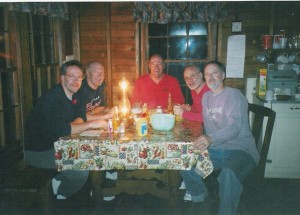A s I sat in the memorial service for my friend, Hal, my attention kept drifting to Hal’s only brother, Dale. Dale was sitting a few rows in front of me and to my left, on the aisle of the second row of the section reserved for the family. Thinning hair, in his late seventies, and reduced in size by illness over the past few years.
s I sat in the memorial service for my friend, Hal, my attention kept drifting to Hal’s only brother, Dale. Dale was sitting a few rows in front of me and to my left, on the aisle of the second row of the section reserved for the family. Thinning hair, in his late seventies, and reduced in size by illness over the past few years.
There was no mention of him in the service. I doubt it was intentional. It’s just that in a memorial service, the spouse, the children, the grandchildren, and close friends get most of the mention. Somehow the surviving members of the family of origin frequently go unnoticed. Having brothers myself, I imagined the pain he was feeling.
Following the service, as everyone milled about snacking on punch and cookies, I spotted Dale. He knew lots of the people there and had been moving from one group to another talking to friends and family. But now he was standing alone, looking a little lost. I approached him and though I had met him before, I introduced myself.
“I can’t imagine many things any harder than losing a brother.”
His eyes rimmed with tears and he replied, “Yeah, it’s pretty hard.”
I told him how sorry I was for his loss, and then added, “You have known Hal longer than anyone in this building.” I could as easily have said, “than anyone in the world,” for there were no more members of his family of origin. He was the last.
“Yes I did. Thank you.”
I wanted to unburden my heart, to talk about how hard it must be to lose a person you had played with and fought with since you were young boys, but that would have been for my benefit, not his. So we exchanged a few more words, I don’t remember what they were, and I excused myself. I was humbled by his loss, unique from anyone else’s in the room.
I grew up assuming that our affection for our siblings just somehow gets channeled into affection for our spouse and children. That seemed to be the model I observed in my parents. Neither of them spoke of their brothers and sisters as if they were current relationships that continued to grow and evolve. Maybe they did, but I didn’t see it or hear about it. My aunts and uncles were simply people who were part of my parents’ past and people we visited on vacations.
Longitudinal sociological and psychological studies have repeatedly shown that sibling relationships are among the most important in our lives, even if they don’t stay in touch later in life. Sibling relationships are important because they are so formative in making us the adults we are today. Our siblings are our first peer relationships. With them we learn to play, fight, negotiate, share possessions, share secrets. We learn much about who we are based on our interactions with those who live under the same roof and often in the same room.
 Fortunately, my brothers and I decided many years ago that our relationships were worth nurturing and building on. We knew how to be kids together, but it took us some years to learn how to be adults together. My brothers are among my most rewarding, challenging, and evolving relationships. The way I see the world and the way I see myself would be greatly diminished were it not for my interactions with my brothers.
Fortunately, my brothers and I decided many years ago that our relationships were worth nurturing and building on. We knew how to be kids together, but it took us some years to learn how to be adults together. My brothers are among my most rewarding, challenging, and evolving relationships. The way I see the world and the way I see myself would be greatly diminished were it not for my interactions with my brothers.
A couple of years ago I talked with a friend who was attending the funeral of his brother. My friend had been a minister and teacher his whole career. He had done hundreds of funerals, many for his own relatives. We were chatting about that before the service when he added, “I performed the services for my mom and my dad. But I couldn’t do my brother’s service.”
“Of course you couldn’t,” was my only reply. Some things are just too sacred and tender and deep.
0 Comments until now
Add your Comment!